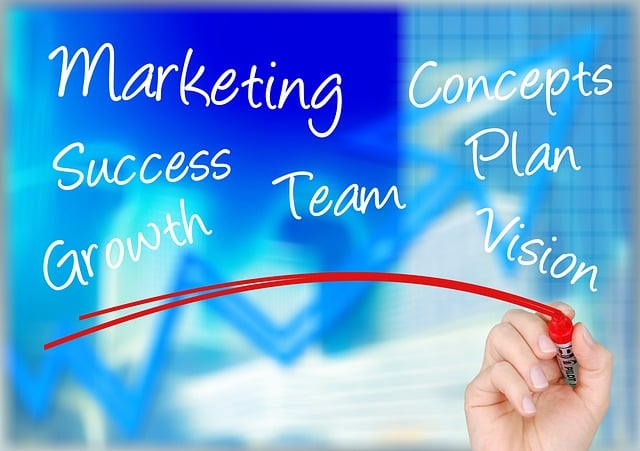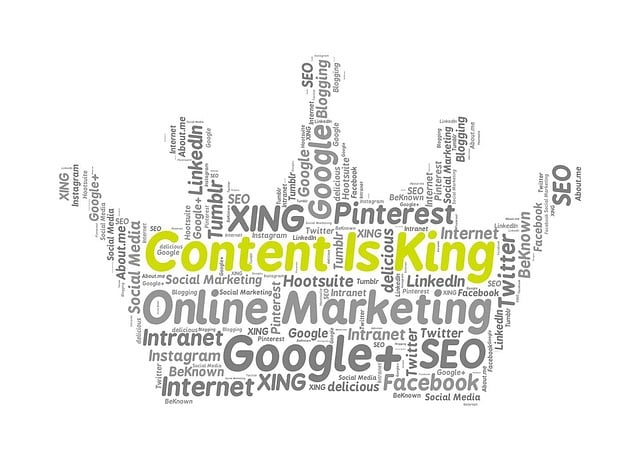AI coaching is revolutionizing car repair shops by leveraging machine learning algorithms for predictive maintenance, reducing downtime and improving efficiency. Natural Language Processing (NLP) chatbots provide 24/7 customer support, handling queries, appointments, and feedback. Implementing AI marketing strategies involves assessing current efforts, choosing tailored AI tools like NLP chatbots and Machine Learning algorithms, personalizing customer experiences, automating common inquiries, and using analytics for efficient pricing. Success is measured through KPIs such as increased customer retention and satisfaction. The future includes sophisticated tools like intelligent scheduling and predictive parts inventory analytics, setting shops apart in the digital age.
In today’s digital age, AI marketing strategies offer car repair shops unprecedented opportunities to boost growth and enhance customer engagement. This article serves as a comprehensive guide for automotive shop owners looking to harness the power of artificial intelligence. We’ll first demystify AI technology tailored for the unique needs of auto repair businesses. Then, we provide a step-by-step implementation plan, followed by insights on measuring success and exploring future trends in this evolving landscape. Discover how AI coaching can revolutionize your marketing approach and drive sustainable growth.
- Understanding AI: Demystifying the Technology for Automotive Shops
- Implementing AI Marketing Strategies: A Step-by-Step Guide
- Measuring Success and Future Trends in AI for Car Repair Shop Growth
Understanding AI: Demystifying the Technology for Automotive Shops

Artificial Intelligence (AI) is no longer a futuristic concept but an integral part of modern business strategy, and car repair shops are no exception. Demystifying AI for automotive shop owners involves understanding its potential applications in streamlining operations and enhancing customer experiences. AI coaching can equip owners with valuable insights to leverage machine learning algorithms for tasks like predictive maintenance, where AI can analyze historical data to anticipate vehicle issues before they occur, reducing downtime.
Additionally, natural language processing (NLP) powers AI chatbots, enabling 24/7 customer support through instant messaging. These virtual assistants can answer common questions, schedule appointments, and provide post-service feedback collection, all while learning from each interaction to improve accuracy and efficiency. By embracing AI coaching, automotive shop owners can future-proof their businesses, ensuring they stay competitive in an increasingly digital landscape.
Implementing AI Marketing Strategies: A Step-by-Step Guide

Implementing AI Marketing Strategies: A Step-by-Step Guide
1. Assess Your Current Situation: Begin by evaluating your car repair shop’s current marketing efforts and customer base. Identify gaps where AI can provide significant improvement, such as personalized customer engagement or predictive maintenance reminders.
2. Choose the Right AI Tools: Select AI tools tailored for automotive shops, focusing on natural language processing (NLP) for chatbots that can handle customer inquiries and scheduling, and machine learning algorithms for predictive analytics on vehicle maintenance needs. Consider platforms offering AI coaching for automotive shop owners to streamline the integration process.
3. Personalize Customer Experience: Utilize AI to create personalized marketing campaigns based on customer history and preferences. Send targeted emails or text messages with tailored service recommendations, special offers, and reminders, enhancing customer loyalty and retention.
4. Automate Communication: Implement chatbots on your website or social media platforms to provide instant customer support 24/7. These AI assistants can answer common questions, schedule appointments, and even assist in basic diagnostics, freeing up staff for more complex tasks.
5. Predictive Maintenance Marketing: Leverage machine learning to predict when vehicles are due for service or repairs. Send proactive reminders to customers, encouraging them to bring their cars in for maintenance before issues escalate. This not only improves customer satisfaction but also increases your shop’s efficiency.
6. Optimize Pricing and Promotions: Use AI analytics to optimize pricing strategies based on market demand, competitor pricing, and customer behavior. Identify the best times to offer promotions or discounts to maximize foot traffic and sales.
Measuring Success and Future Trends in AI for Car Repair Shop Growth

Measuring success is a vital aspect of any marketing strategy, and AI-driven car repair shops are no exception. By utilizing machine learning algorithms, shop owners can track customer engagement, predict maintenance needs, and optimize service offerings. Key performance indicators (KPIs) such as increased customer retention, improved first-time fix rates, and enhanced overall customer satisfaction serve as powerful metrics to gauge the effectiveness of AI implementation. These insights enable shops to fine-tune their strategies, ensuring they stay ahead in a competitive market.
Looking ahead, the future of AI in car repair holds immense potential. As technology advances, we can expect more sophisticated AI coaching tools tailored specifically for automotive shop owners. This may include intelligent scheduling systems that optimize labor costs and minimize wait times, predictive analytics for parts inventory management, and even virtual assistants to enhance customer communication. Embracing these trends will not only drive growth but also set car repair shops apart in the digital age, offering a level of efficiency and personalization that captivates modern consumers.
AI marketing strategies, including AI coaching tailored for automotive shop owners, offer a transformative path to growth in the competitive car repair industry. By demystifying this technology and implementing practical steps, shops can enhance customer engagement, streamline operations, and stay ahead of the curve. Measuring success through data-driven insights will guide future trends, ensuring car repair businesses thrive in today’s digital age. Embracing AI is no longer an option but a necessity for sustainable growth.
